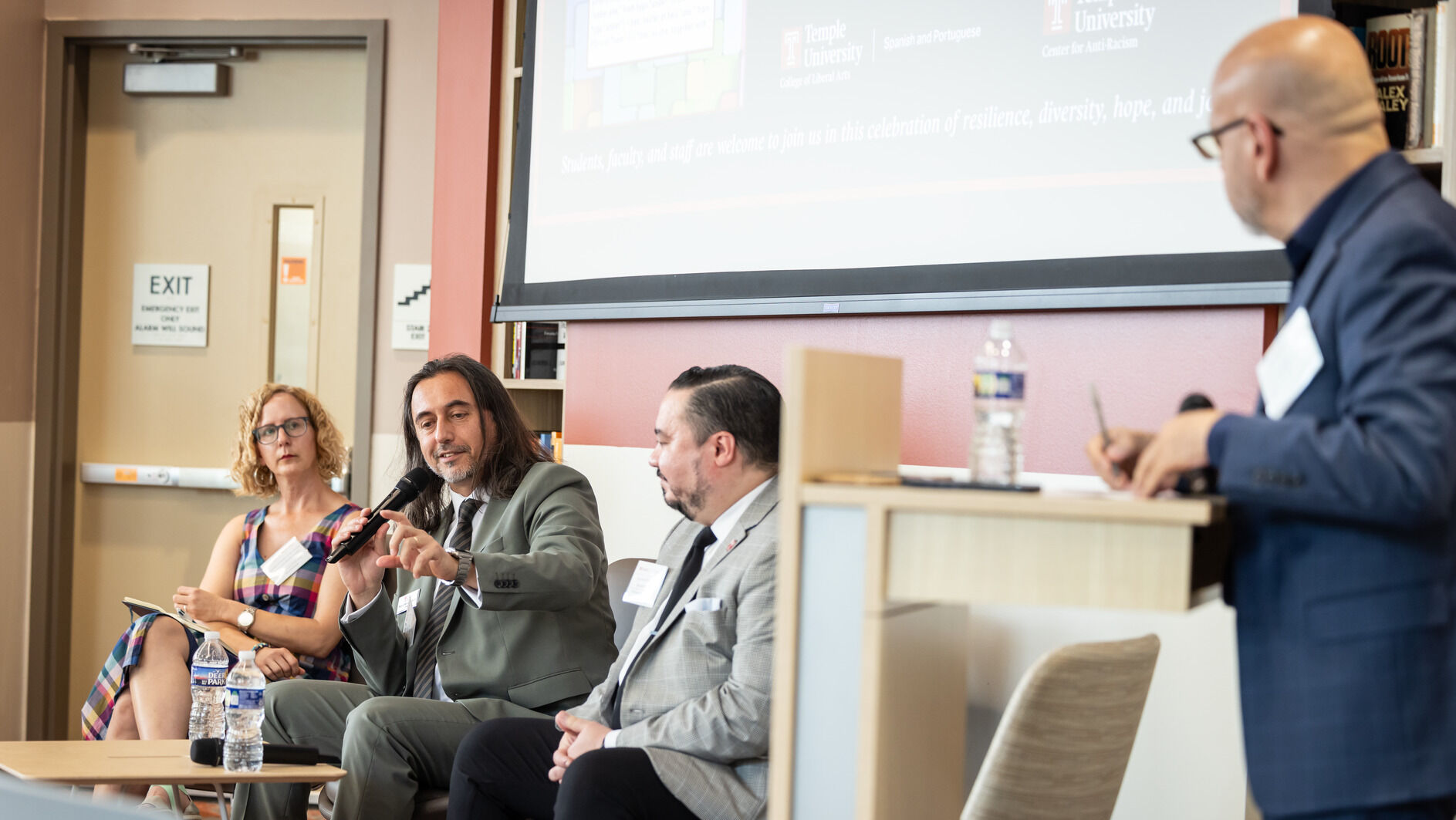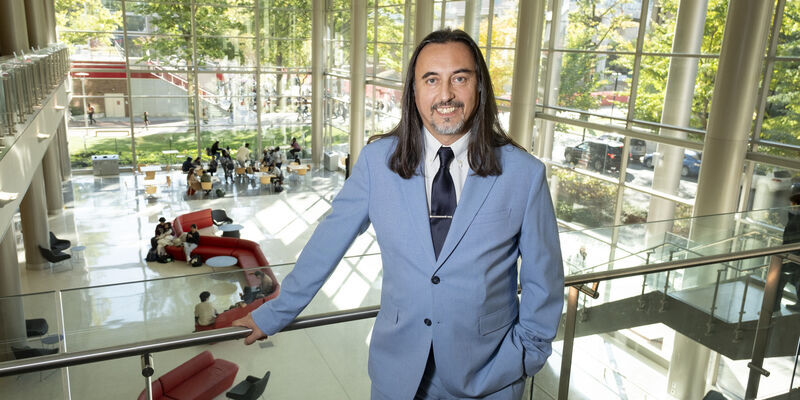Temple leaders reflect on identity and experiences as Hispanic Americans
Dean Miguel Mostafá, Professor Mariola V. Alvarez and Assistant Dean Michael Usino shared their perspectives on culture, identity, language and other topics in a panel presented by the Spanish and Portuguese Department and the Center for Anti-Racism.

In celebration of Hispanic Heritage Month, leaders from across Temple shared their experiences as Hispanic Americans living in the U.S. during a panel presented by the Spanish and Portuguese Department and the Center for Anti-Racism on Oct. 8.
Miguel Mostafá, dean of the College of Science and Technology; Mariola V. Alvarez, director of graduate studies and associate professor of art history; and Michael Usino, CLA ’06, ’10, assistant dean of admissions and enrollment management in the College of Public Health, discussed topics such as culture, language, family, career path, representation and other related subjects at the event titled In the Hyphen.
Timothy Welbeck, director of the Center for Anti-Racism and assistant professor in the Africology and African American Studies Department, and José Manuel Pereiro Otero, chair and professor in the Spanish and Portuguese Department, gave opening remarks before moderator Javier Suárez, executive director of the nonprofit Live Work Philadelphia, kicked off the conversation.
The title of the panel is a salute to the book Life on the Hyphen: The Cuban-American Way in which author and emeritus professor of Columbia University Gustavo Pérez Firmat writes “Hyphenation can mean different things … but fundamentally it names a spiritual bilocation, the sense of being in two places at once or of living in one while residing in another.”
This theme was present throughout the conversation as the panelists highlighted their multifaceted identities.
“Growing up in Miami and being the daughter of Cuban Americans, I spent my life learning and unlearning how to be Latinx,” said Alvarez.
As a first-generation student and art historian, Alvarez reflected on her decision to study Brazilian art rather than Cuban art. “The prospect of me doing research in Cuba wasn’t a viable option since nobody went back from my family,” she said. “But choosing Brazil still felt like an autobiography because it’s allowed me to think about the history of the displacement my parents experienced.”
Also during the conversation, Mostafá recalled emigrating from Argentina about 30 years ago to work on a powerful particle accelerator for the U.S. Department of Energy and spoke about challenges and opportunities.
“We’re not represented in all the different spheres,” said Mostafá. “Latinos in the sciences are a minority, for instance. It’s important to serve as an example for others to show them what’s possible.”
Like Alvarez, Usino is a child of immigrants—his mother is from Colombia, while his father hails from Puerto Rico. As a Temple alum and employee for nearly 20 years, he remembers first joining the student organization Asociación de Estudiantes Latinos and later inquiring about Hispanic faculty and staff involvement when he began working at the university.
“I’ve been hoping for something like this panel for some time,” said Usino. “There’s much more work to do in terms of organizing ourselves as a community on campus.”
During the discussion, panelists also shared their thoughts on the various terms to describe descent such as Hispanic, Latino/a, Latinx and Latine; the importance of diverse leadership; and Bad Bunny, who was recently announced as the headliner for the Super Bowl LX halftime show.
Additionally, they offered advice to those both in and outside of the Hispanic community.
“Find your people,” said Mostafá. “I always mentor Latinx groups of students and faculty because that support has helped me the most. I’ve also built friendships outside the university environment through soccer.”
Usino emphasized showing support in spaces like this panel. “As you absorb these connections and discussions, self-reflect on what small actions you can take,” he said. “There’s a want especially right now to do big things, but change is often the sum of small steps.”
The leaders agreed they’d like the discussion to continue as well.
“I’d love if the next part of this conversation includes different groups across campus and talking about what it means to be diverse at Temple,” said Alvarez. “It’s important to have those cross-cultural and cross-racial conversations so that we continue learning from one another.”


